Rev. Dr. Diane Hemmen, Senior Associate Pastor, Village Presbyterian Church
Drawing upon a Dr. Linda Burks’ recent work Navigating Transitions: Embracing Change and Finding Purpose, this class will explore proven tools for clarifying what truly matters to you in times of transition, growth, decline, and change, options for embracing change with confidence, curiosity, and compassion, and practical ways to step forward from what no longer serves you while welcoming what’s next. Biblical parallels and spiritual practices will be included in each session as well.
Wednesdays: May 6, 13, 20
6:15-7:45 p.m.
Village Presbyterian Church, 6641 Mission Rd., Prairie Village, KS (Room 132)
Rev. Dr. Hemmen was born to South Dakota dairy farmers and grew up going to church three times a week (or more), the rhythms of twice-a-day chores, eating her Grandma’s cookies, and a longing for autumn to come so school would start again in their town of 400. Her love of learning, community, and cookies continues to this day. Her gratitude for God’s welcome and presence keeps growing broader and deeper.
Diane is a graduate of the University of Sioux Falls, The Divinity School at Duke University, the University of North Carolina Hospital’s Clinical Pastoral Education program, Princeton Theological Seminary Youth Ministry Institute, Columbia Theological Seminary, and the PC(USA) Transitional Ministry Education Consortium. She also completed training with Healthy Congregations in familial and organizational systems theory, becoming a facilitator and a facilitator trainer. She has served the Presbyterian Church in many roles, including a trauma level-2 hospital, hospice, and home health chaplain, but she mostly recently served as head of staff at First Presbyterian Church in Stillwater, Oklahoma.
Diane is married to Rev. Dr. Gregg Hemmen. They have two grown children, Ainslee and Eli, who were born in Chapel Hill, North Carolina, while Diane served at University Presbyterian Church—the congregation that ordained her. Diane loves her family, a good puzzle, celebrating diversity, nurturing the flourishing of others, and chocolate.

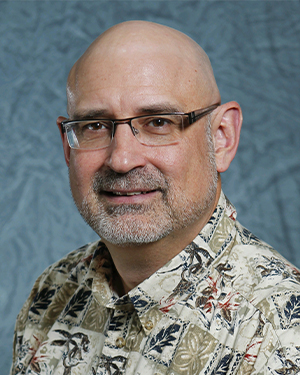 Dr. Chance was born in Topeka, Kansas, and grew up all over the United States, as his father served our country in the Marine Corps. He received his Bachelor of Arts from the University of North Carolina, Chapel Hill, his Master of Divinity from Southeastern Baptist Theological Seminary and his Doctor of Philosophy in religious studies from Duke University. He began to teach at William Jewell College in 1982 and fully retired in 2021. He has worshiped within numerous Christian traditions: Baptist, Episcopalian, Lutheran, and is currently an active member of Peace Christian Church (UCC) in Kansas City. He has enjoyed the opportunities offered him to teach the Bible in both academic and faith settings.
Dr. Chance was born in Topeka, Kansas, and grew up all over the United States, as his father served our country in the Marine Corps. He received his Bachelor of Arts from the University of North Carolina, Chapel Hill, his Master of Divinity from Southeastern Baptist Theological Seminary and his Doctor of Philosophy in religious studies from Duke University. He began to teach at William Jewell College in 1982 and fully retired in 2021. He has worshiped within numerous Christian traditions: Baptist, Episcopalian, Lutheran, and is currently an active member of Peace Christian Church (UCC) in Kansas City. He has enjoyed the opportunities offered him to teach the Bible in both academic and faith settings. 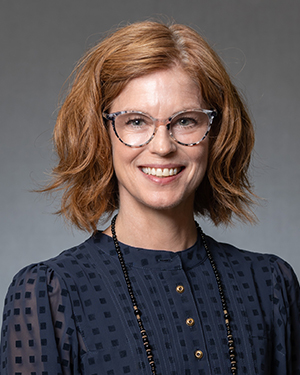 Dr. Morrison received a B.A. in English and Religious Studies from Swarthmore College and her M.A. and Ph.D. in English from the University of Colorado at Boulder. Her area of specialty is Renaissance/Early Modern literature; her interests also include women writers, gender studies, film, and critical theory. She co-edited the book Staging the Blazon in Early Modern English Theater (Ashgate Press, 2013) and contributed an essay to that collection. She is currently interested in relic qualities of the blazon in early modern drama and poetry and in early modern women’s wills. Dr. Morrison teaches British literature and critical theory.
Dr. Morrison received a B.A. in English and Religious Studies from Swarthmore College and her M.A. and Ph.D. in English from the University of Colorado at Boulder. Her area of specialty is Renaissance/Early Modern literature; her interests also include women writers, gender studies, film, and critical theory. She co-edited the book Staging the Blazon in Early Modern English Theater (Ashgate Press, 2013) and contributed an essay to that collection. She is currently interested in relic qualities of the blazon in early modern drama and poetry and in early modern women’s wills. Dr. Morrison teaches British literature and critical theory.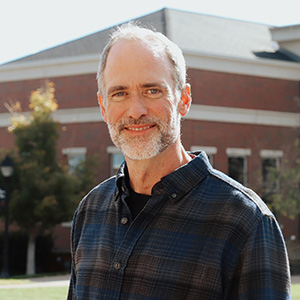 Brendon Benz is an associate professor of history and religion and theologian-in-residence with the Center for Faith and Culture. Originally from Fort Wayne, Indiana, Benz was raised in the Lutheran Church and attended Lutheran school from kindergarten through 12th grade. He earned his B.A. in Sociology from Taylor University before teaching history at Martin Luther High School in Queens, New York. He later received his M.Div. from Princeton Theological Seminary, where he was awarded the Goethe Institute Fellowship and the Henry Snyder Gehman Award in Old Testament. In 2013, he earned his Ph.D. in Hebrew Bible and Ancient Near Eastern Studies from New York University, where he also received the NYU College of Arts and Sciences Outstanding Teaching Award. Benz is the author of The Land Before the Kingdom of Israel and is currently working on a book exploring the Greek philosophical tradition and the interpretation of the imago Dei in Genesis 1. His passion lies in teaching the Bible’s message, history, and context in ways that help communities of faith flourish.
Brendon Benz is an associate professor of history and religion and theologian-in-residence with the Center for Faith and Culture. Originally from Fort Wayne, Indiana, Benz was raised in the Lutheran Church and attended Lutheran school from kindergarten through 12th grade. He earned his B.A. in Sociology from Taylor University before teaching history at Martin Luther High School in Queens, New York. He later received his M.Div. from Princeton Theological Seminary, where he was awarded the Goethe Institute Fellowship and the Henry Snyder Gehman Award in Old Testament. In 2013, he earned his Ph.D. in Hebrew Bible and Ancient Near Eastern Studies from New York University, where he also received the NYU College of Arts and Sciences Outstanding Teaching Award. Benz is the author of The Land Before the Kingdom of Israel and is currently working on a book exploring the Greek philosophical tradition and the interpretation of the imago Dei in Genesis 1. His passion lies in teaching the Bible’s message, history, and context in ways that help communities of faith flourish.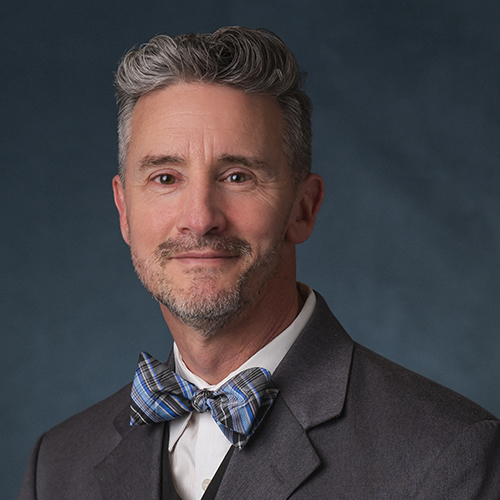 Ian Coleman grew up in Bristol, England, attending Counterslip Baptist Church before leaving for college at 18. His evangelical background was influenced by the house church movement. Coleman later joined the Episcopal Church and has worked as a church musician since his teens. Now a professor of music theory and composition at William Jewell College, he teaches courses on music, culture, and composition.
Ian Coleman grew up in Bristol, England, attending Counterslip Baptist Church before leaving for college at 18. His evangelical background was influenced by the house church movement. Coleman later joined the Episcopal Church and has worked as a church musician since his teens. Now a professor of music theory and composition at William Jewell College, he teaches courses on music, culture, and composition.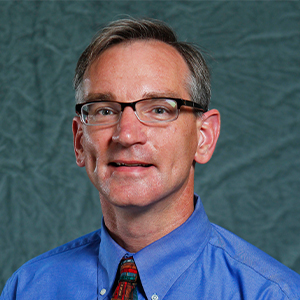 Blane Baker is a professor of Physics at William Jewell College where he has taught since 1999. He is the author of "Science in the Arena" and "Critical Thinking in the Physics Curriculum" and serves as president of Sigma Pi Sigma, the national physics honor society. His interests include electronics, sustainable energy, and materials science. He is an active member of Second Baptist Church in Liberty.
Blane Baker is a professor of Physics at William Jewell College where he has taught since 1999. He is the author of "Science in the Arena" and "Critical Thinking in the Physics Curriculum" and serves as president of Sigma Pi Sigma, the national physics honor society. His interests include electronics, sustainable energy, and materials science. He is an active member of Second Baptist Church in Liberty.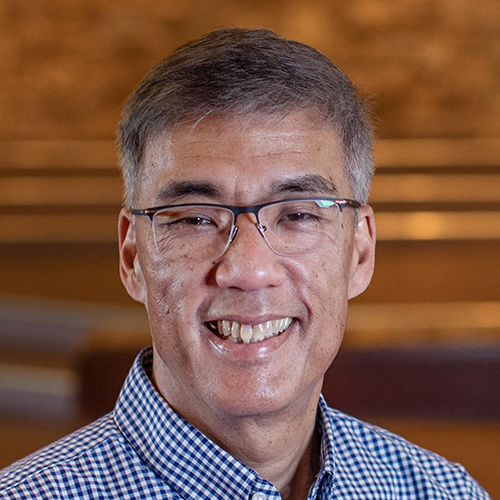 Rodger Nishioka is the senior pastor of Village Presbyterian Church in Prairie Village and former professor of Christian education at Columbia Theological Seminary.
Rodger Nishioka is the senior pastor of Village Presbyterian Church in Prairie Village and former professor of Christian education at Columbia Theological Seminary.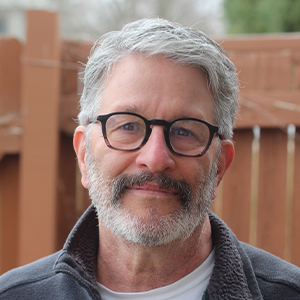 Mark Buhlig is pastor at Englewood Church in Gladstone, Missouri, as well as a farmer, community organizer, and student of Agrarian Spirituality. His Agrarian work is expressed by way of Community Growers Network, an organization that encourages collaborative opportunities for churches, schools, and individuals to grow and distribute healthy food to those who struggle to find or afford healthy food.
Mark Buhlig is pastor at Englewood Church in Gladstone, Missouri, as well as a farmer, community organizer, and student of Agrarian Spirituality. His Agrarian work is expressed by way of Community Growers Network, an organization that encourages collaborative opportunities for churches, schools, and individuals to grow and distribute healthy food to those who struggle to find or afford healthy food.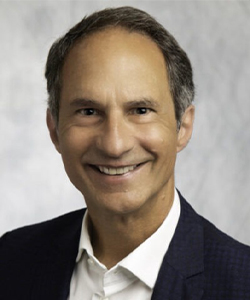 Tom Petrizzo is the former CEO of Beacon Mental Health and has spent over 30 years in nonprofit behavioral health leadership. He holds degrees from Georgetown University, the University of Texas Law School, and the University of Houston. A long-time member of Church of the Resurrection, he enjoys hiking, jogging, and spending time with his family.
Tom Petrizzo is the former CEO of Beacon Mental Health and has spent over 30 years in nonprofit behavioral health leadership. He holds degrees from Georgetown University, the University of Texas Law School, and the University of Houston. A long-time member of Church of the Resurrection, he enjoys hiking, jogging, and spending time with his family.